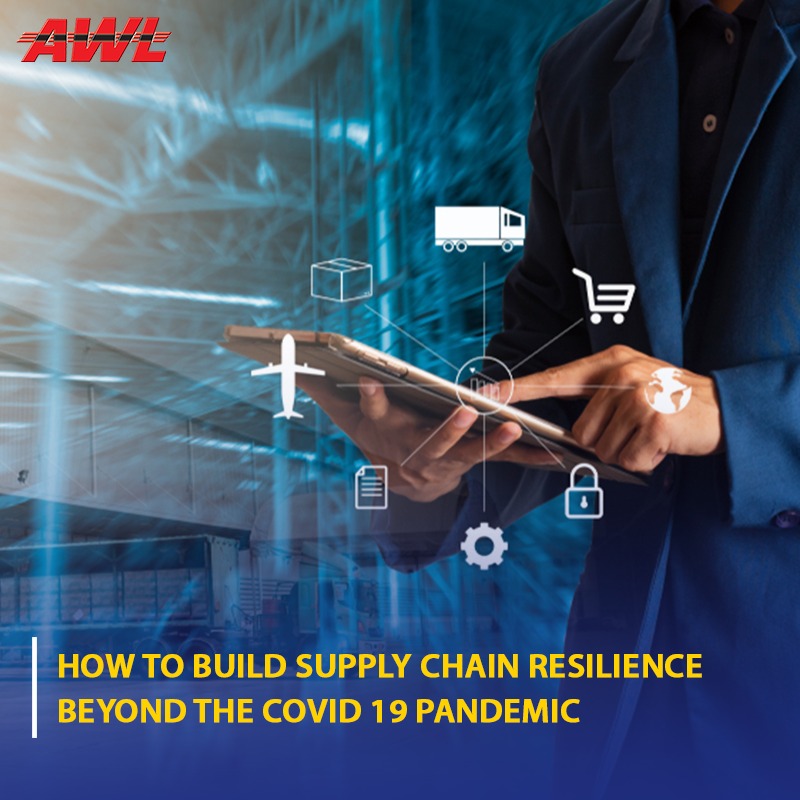Supply Chain Resiliency Lessons Learned From Covid 19 A Guide Perficient

How Resilient Is Your Supply Chain To The Covid 19 Crisis Arcblue Supply chain resiliency: lessons learned from covid 19 it’s not news to anyone that covid 19 has impacted the world and how companies do business in ways never imagined. in particular, the pandemic highlighted just how vulnerable supply chains are and has forced companies to evaluate their current state and focus on building more resilient. Investments in supply chain resilience can deliver a 15% to 25% improvement in plant output and a 20% to 30% rise in customer satisfaction, bain’s experience shows. advanced analytics can improve supply forecast accuracy by 20% to 60%. it happened faster than anyone could imagine.

3 Lessons In Supply Chain Resilience Learned From Covid 19 Omnichain Successful companies are investing in supply chain resilience to minimize those risks and to benefit from improved efficiencies. take the example of procter & gamble, which deployed a cloud based figure 1: a growing number of risks threaten supply chains today, but investments can restore resilience vulnerable supply chains low high high. The existing literature measures the 2rs from multiple perspectives, but it lacks empirical research to test and validate the measurements. in “strengthening supply chain resilience during covid 19: a case study of jd ” (shen & sun, 2023), the authors provided example supply chain resilience indicators. future work should develop more. Abstract. the covid 19 pandemic has triggered new research areas in supply chain resilience. one of these new areas is viability. viability extends the resilience understanding from performance based assessment of firm’s responses to disruptions towards survivability of both supply chains and associated ecosystems not only during some short term disruptions but also under conditions of long. Covid 19 pandemic is the worst humanitarian crisis that economies across the globe have witnessed. forced lockdowns, social distancing, and restricted mobility have contributed to large scale disruptions in the supply chain network. the purpose of the paper is to identify critical factors affecting global supply chain and evaluate strategies for risk reduction in the supply chain network by.

Build Supply Chain Resilience Beyond The Covid 19 Pandemic Abstract. the covid 19 pandemic has triggered new research areas in supply chain resilience. one of these new areas is viability. viability extends the resilience understanding from performance based assessment of firm’s responses to disruptions towards survivability of both supply chains and associated ecosystems not only during some short term disruptions but also under conditions of long. Covid 19 pandemic is the worst humanitarian crisis that economies across the globe have witnessed. forced lockdowns, social distancing, and restricted mobility have contributed to large scale disruptions in the supply chain network. the purpose of the paper is to identify critical factors affecting global supply chain and evaluate strategies for risk reduction in the supply chain network by. The covid 19 pandemic has challenged supply chains more seriously challenged than ever before. during this prolonged global health crisis, supply chain managers were forced to rely primarily on solutions developed for limited and foreseeable crises. this study aimed to understand how well existing solutions facilitated supply chain resilience. Rather, it is the lessons we can learn from the covid 19 experience to make global supply chains more resilient, so they can restore functionality after any disruption in the future, and more robust, so they remain functional during such future disruptions. the focus should be on redesign, not on abandonment of global supply chains.

Supply Chain Lessons From Covid 19 Time To Refocus On Resilience Bain Company The covid 19 pandemic has challenged supply chains more seriously challenged than ever before. during this prolonged global health crisis, supply chain managers were forced to rely primarily on solutions developed for limited and foreseeable crises. this study aimed to understand how well existing solutions facilitated supply chain resilience. Rather, it is the lessons we can learn from the covid 19 experience to make global supply chains more resilient, so they can restore functionality after any disruption in the future, and more robust, so they remain functional during such future disruptions. the focus should be on redesign, not on abandonment of global supply chains.

Comments are closed.